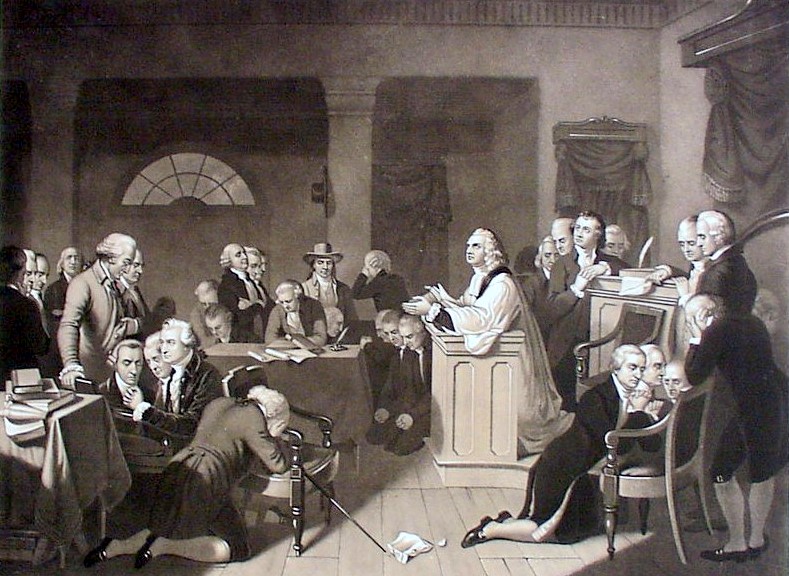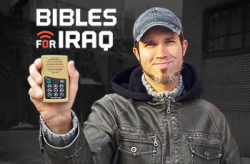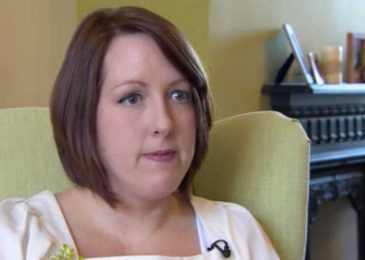
RICHMOND, Va. — A federal appeals court has upheld the rights of commissioners in one North Carolina county to pray during public meetings, overturning a lower court ruling declaring the invocations in Jesus’ name to be discriminatory.
As previously reported, the American Civil Liberties Union (ACLU) and ACLU of North Carolina Legal Foundation (ACLU-NCLF) had filed suit against the Rowan County commissioners in March 2013, complaining that their invocations have asserted that “there is only one way to salvation, and that is Jesus Christ,” and thank the Lord for the “virgin birth,” the “cross at Calvary” and “the resurrection.”
“I want my local government to be open and welcoming to people of all beliefs,” Nan Lund, a local resident who was among three plaintiffs named in the suit, stated in a news release announcing the legal challenge. “But when officials begin a public meeting with prayers that are specific to only one religious viewpoint, I feel unwelcome and excluded.”
In July 2013, federal Judge James A. Beaty Jr., nominated to the bench by then-President Bill Clinton, sided with the ACLU and the three complainants, ordering the commissioners to end their Christian prayer practice while the case moves forward in court.
Two years later, Beaty issued his final decision, declaring the prayers predominantly in Jesus’ name to be unconstitutional.
“The practice fails to be nondiscriminatory, entangles government with religion, and over time, establishes a pattern of prayers that tends to advance the Christian faith of the elected commissioners at the expense of any religious affiliation unrepresented by the majority,” he wrote.
Beaty pointed to the 2014 Supreme Court ruling in Greece v. Galloway, which approved city council prayers in Greece, New York that were predominantly—but not solely—Christian. Beaty asserted that Rowan County’s practice was different because the prayers were only Christian since its commissioners all identify as Christians.
“While an all-comers policy is not necessarily required, a nondiscriminatory one is,” he said. “When all faiths but those of the five elected commissioners are excluded, the policy inherently discriminates and disfavors religious minorities.”
But on Monday, the Fourth Circuit Court of Appeals, headquartered in Richmond, Virginia, used Greece v. Galloway to uphold the commission’s prayers. It disagreed with Beaty’s interpretation of the high court decision.
“In essence, the district court treated the Supreme Court’s jurisprudential silence on lawmaker-led prayer as conclusively excluding legislators from being permissible prayer-givers to their own legislative bodies,” wrote Judge G. Steven Agee, nominated to the bench by then-President George W. Bush.
“On a broader level, and more importantly, the very ‘history and tradition’ anchoring the Supreme Court’s holding in Town of Greece underscores a long-standing practice not only of legislative prayer generally but of lawmaker-led prayer specifically. Opening invocations offered by elected legislators have long been accepted as a permissible form of religious observance,” he said.
Judge Dennis Shedd, nominated to the bench by George H.W. Bush, concurred. Judge J. Harvie Wilkinson, nominated to the bench by Ronald Reagan dissented.
“[W]e decline to accept the district court’s view that legislative prayer forfeits its constitutionally protected status because a legislator delivers the invocation. A legal framework that would result in striking down legislative prayer practices that have long been accepted as ‘part of the fabric of our society’ cannot be correct,” Agee declared in the 2-1 decision.
Greg Edds, chairman of the Rowan County Board of Commissioners, told the Salisbury Post that he is thankful for the outcome of the case.
“We are very pleased with the decision and think the court properly decided the matter,” he said. “Our attorneys are currently working through the decision and we will know more about it in the coming days.”
The ACLU says it plans to appeal en banc.
“Rowan County residents should be able to attend local government meetings without being coerced to participate in a sectarian prayer or worry that the commissioners may discriminate against them if they do not,” North Carolina ACLU Legal Director Chris Brook remarked.
A special message from the publisher…
 Dear Reader, our hearts are deeply grieved by the ongoing devastation in Iraq, and through this we have been compelled to take a stand at the gates of hell against the enemy who came to kill and destroy. Bibles for Iraq is a project to put Arabic and Kurdish audio Bibles into the hands of Iraqi and Syrian refugees—many of whom are illiterate and who have never heard the gospel.Will you stand with us and make a donation today to this important effort? Please click here to send a Bible to a refugee >>
Dear Reader, our hearts are deeply grieved by the ongoing devastation in Iraq, and through this we have been compelled to take a stand at the gates of hell against the enemy who came to kill and destroy. Bibles for Iraq is a project to put Arabic and Kurdish audio Bibles into the hands of Iraqi and Syrian refugees—many of whom are illiterate and who have never heard the gospel.Will you stand with us and make a donation today to this important effort? Please click here to send a Bible to a refugee >>






